|
GREEK EASTER - PASCHA
During Greek Easter - Pascha is a wonderful time to visit Greece and experience all the customs and traditions that the Greeks celebrate today that has changed very little in hundreds of years.
Greece is a christian orthodox country and a large percentage of the population follow closely the christian traditions, and many will observe the traditions of Lent and give up certain foods for this time. The foods that are generally restricted for Lent are meat or fish that has blood, as well as anything that comes from an animal with blood such as cheese, yogurt, milk and eggs. The degree of foods that people abstain from these days however, may be changing. I do know of many people that will just give up meat, rather than abstaining from all the restricted foods. For the Greek Orthodox Easter, the church follows the Julian calender, and that is why some years Greece celebrates Easter at a different time to other countries. Greek Easter starts with Clean Monday - Katheri Deftera, which is the first day of Lent. It is a public holiday in Greece and there will be many parties and celebrations going on. Many people will be feasting on fish, and gathering round to play music and sing songs as the Greeks are so good at when celebrating. This day represents cleansing their bodies for the resurrection. The whole period of Lent in Greece is called Nistia and any food which is allowed to be eaten during this time will have the word nistisima after it, to indicate that the ingredients are not part of the restricted foods. The week before Easter starts off the main period of Easter with Palm Sunday. The week leading up to Pascha in Greece is called Holy Week - Megali Evdomatha.
On Holy or Great Thursday, preparation gets underway for the greek easter celebration. Tsoureki, Greek Easter bread recipe is a special, celebratory bread that is slightly sweet in taste. This is usually only made for Easter, and several will be baked today to last over the weekend. Batches of Easter Cookies of Greece will be baked today ready to offer any visitors over the weekend. Another Greek Easter tradition is to cook up a large batch of eggs and dye them red. These red eggs symbolise the blood of Christ as well as the eggs symbolizing a new life. A couple of these eggs will be placed in the tsoureki bread. A favourite game they play with the eggs is between two people, each one takes an egg in their hand, with one end of the egg sticking out. Taking it in turns with their partner, one will hit the opponents egg with their own egg. The person whose egg cracks first is the loser. The winner then goes on to another round with someone else and so on. This game with the red eggs - Kokkina Avga is called Tsougrisma.
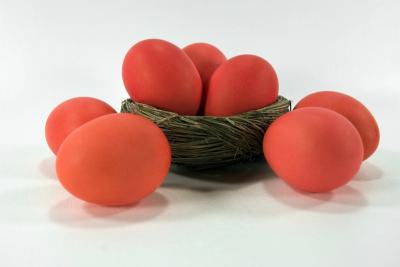 On Good Friday or Holy Friday, this is a very holy day in the orthodox faith. It is a day of mourning and the church bells will ring slow and steady through the day. People will be flocking to the church at all times of the day for prayers. It is a day of no work (or cooking). In the evening, a procession will leave the church, headed by the priest and his close followers, going round the neighbourhood streets to eventually return to the church. All the neighbourhood will be out, lining the streets to watch as the procession passes by. Some will follow behind, once it has passed to return to the church. In some communities, at the head of the procession, the church leaders will be carrying a bier on their shoulders, which will be decorated with many flowers and in the centre will be a symbolic icon of Christ. This procession represents the path Jesus' followers took, removing his body off the cross and taking it to the grave. The people gathered along the streets are lamenting the death of Christ. This procession is called Epitafios.
On Easter Saturday, or Holy Saturday, the eternal flame is brought to Greece and passed on to the priests to take the flame back to their churches, where a main candle in the church is lit with this flame. On this day, people will be preparing the lamb for the Easter Sunday celebrational meal, they will cook any foods that can be prepared a day ahead and will also prepare and cook in the early evening, a greek Easter soup - Mayeritsa. Just before midnight, everyone, including children will head to their local church. There will be so many people there that they will just gather outside of the church, often with speakers to be able to hear the priest inside. Everyone will bring along with them a thin white candle - or you will find many street sellers around with an array of decorated Greek Easter candles for sale. Just before midnight, all the lights will be put out with just the eternal flame flickering. After midnight, the priest calls out, Christos Anesti, which means Christ is Risen. He will then take the flame and light the candles of those closest to him with the eternal flame. These people will then pass the flame on to others and so on, until it has reached all the people gathered outside, and everyone's candle is alight. People will greet each other with Christos Anesti and reply with Alithos Anesti - Truly He is risen.
Once they arrive home, it is a custom to create a cross on the front door of their homes, made with the smoke of the flame. It is believed that their home will then be blessed for that year. As midnight ends the period of lent, the Greeks will go home and traditionally sit down to a bowl of Mayeritsa - a Greek Easter soup that is always eaten on this evening. This soup will have been prepared earlier in the evening and kept warm whilst at the church ready to eat on their return, along with tsoureki bread and the red cooked eggs.
Another meal prepared and cooked at the same time is Kokoretsi, which is a Greek Easter appetizer, traditionally only cooked at Easter in Greek homes, (available in taverna's most of the year) which is also cooked on a spit, over the hot coals. As people arrive, everyone takes a turn at sitting by the embers of the fire, turning the spit and enjoying the company and comaraderie on this day. People will greet each other saying Kalo Pascha - Happy Easter.
Do You Have a Story about Greek Easter?Have you celebrated a traditional Easter in Greece? Or been caught up in some of the wonderful celebrations at Easter time in Greece? Do you celebrate Greek Easter somewhere else in the world? How do you celebrate Pascha - Greek Easter? Share your story or experiences of Greek Easter celebrations with other lovers of Greek Food. Your Greek Easter Stories Click on the links below to read Greek Easter Stories submitted by other Greek Food lovers to this page...
My First Greek Easter Not rated yet I was invited to spend the weekend with my boyfriend’s family. There was so much …
|





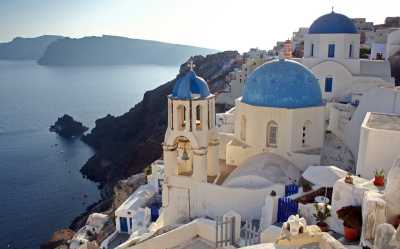
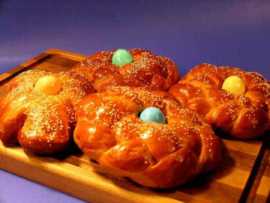

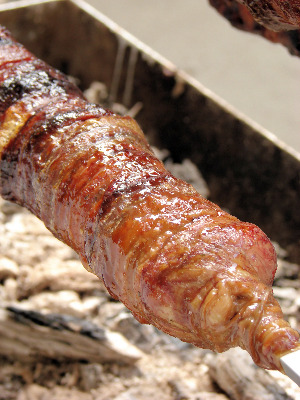 The crowds will then return to their homes, protecting their flames so that they don't go out until they reach their homes. It is a wonderful sight, to see the dark night, lit up by thousands of flames moving slowly down the streets, disbursing different ways to their homes.
The crowds will then return to their homes, protecting their flames so that they don't go out until they reach their homes. It is a wonderful sight, to see the dark night, lit up by thousands of flames moving slowly down the streets, disbursing different ways to their homes.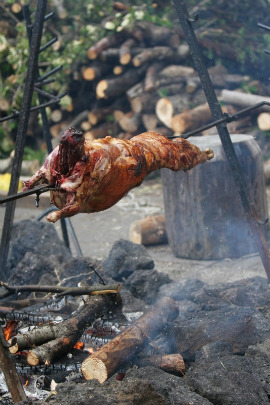 On Easter Sunday, some will be rising very early to prepare the ground and start the wood or coals burning in preparation for the
On Easter Sunday, some will be rising very early to prepare the ground and start the wood or coals burning in preparation for the


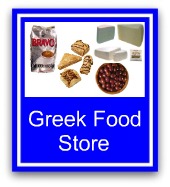
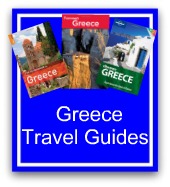
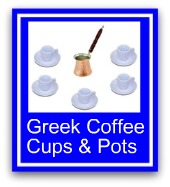


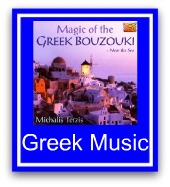
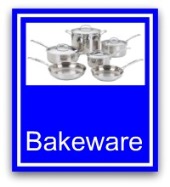



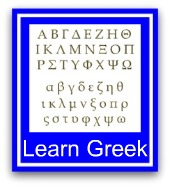

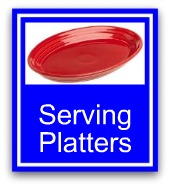


New! Comments
Have your say about what you just read! Leave me a comment in the box below.